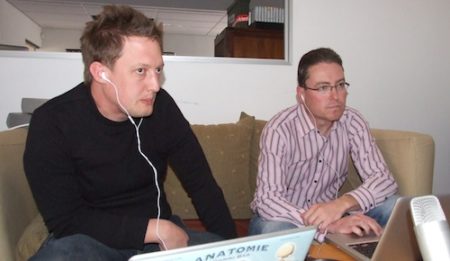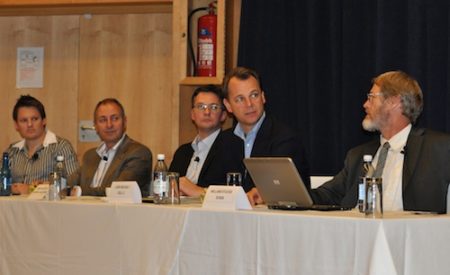One of the questions I’m most often asked by readers is what high-definition (HD) television set they should buy. With a bewildering array of choice in flat-panel TVs, it’s not an easy question to answer. I thought I’d put it to an expert. Gerdus van Eeden knows more about broadcasting technology than just about anyone in SA. The MultiChoice chief technology officer is a veritable font of knowledge on all things TV-rela
Browsing: Duncan McLeod
TechCentral editor Duncan McLeod and Finweek technology editor Simon Dingle have been named joint ICT journalists of the year at the inaugural Telkom Classic Business Journalist of the Year Awards. The awards, the ceremony for which was held at Summer Place in Sandton on Thursday, was organised to recognise excellence in
SA is about to auction off a chunk of radio frequency spectrum that can be used to provide wireless broadband services. Let’s hope our operators don’t do what their European counterparts did a decade ago with 3G spectrum. It’s known as the great telecommunications crash of 2001. Mobile operators in the UK and Germany bid ridiculous amounts — cumulatively, hundreds of billions of rand
Why do people fly all over the world? In many cases it’s simply not necessary. And with interesting new videoconferencing technologies being developed, long-haul travel may eventually become the exception in business rather than the rule. It always amazes me how journalist colleagues
Welcome to TechCentral TV. This is a pilot, proof-of-concept show that TechCentral has produced in partnership with Traffic Corporate Media…
Government often argues that it must retain its stake in Telkom because the telecommunications company is a “strategic national asset”. But with competition intensifying by the day, the best thing that could happen to Telkom — and its customers — would be for government to sell up
While attention has been focused on television in the digital migration debate, digital radio has been left out in the…
On Tuesday, 11 May, TechCentral hosted the inaugural TechCentral Debate Series event at the First National Bank conference centre in…
Just about everyone in SA’s broadcasting industry has been taken aback by government’s decision to rethink its commitment to the European digital television standard. There are concerns it could set back the country’s digital migration by years
Something extraordinary looks set to happen soon in the world of technology. Apple, virtually bankrupt 14 years ago, is on the verge of overtaking Microsoft as the world’s biggest tech company by market value. Is its stock overvalued?








